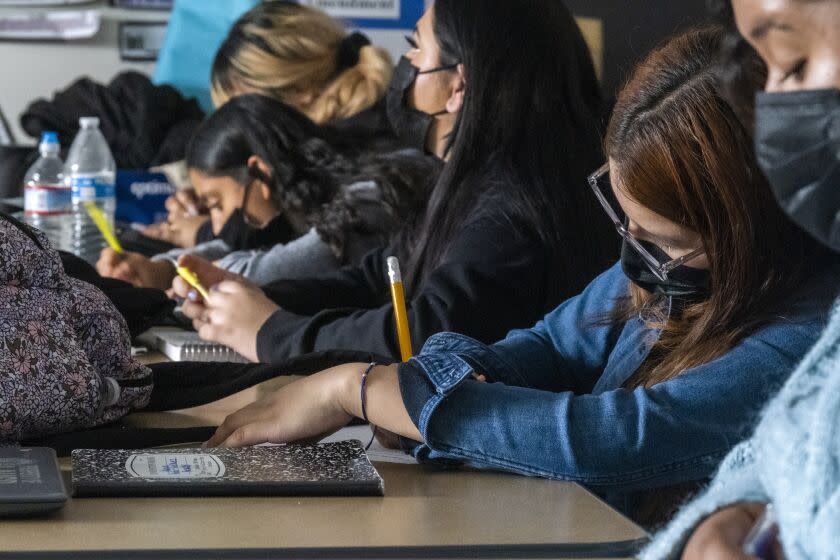Letters to the Editor: Technology has a place in the classroom. Chatbots don't

To the editor: I can only guess that the experts in adolescent character development and computer science who wrote the op-ed article, "Don't ban chatbots in classrooms — use them to change how we teach," have never served as classroom teachers who assign and grade essays. They claim that that artificial intelligence provided by chatbots will provide the knowledge that encourages students to think.
The process these authors envision is a student approaching an essay writing assignment thirsting for knowledge, using the knowledge-providing chatbot and then starting to think. As a longtime college teacher, I know that this perception is far from reality.
Normally, a student's first reaction is fear of failure. Most students will then start the process of writing by thinking. Those few who want to take shortcuts will first consult Google, Wikipedia or a professional essay writing service. These forms of high-tech cheating relieve the fear of failure and bypasses the desired process of thinking.
The op-ed writers cite Socrates, who eschewed writing out of fear that it encourages forgetfulness. Fortunately for us, the wisdom of Socrates has indeed not been forgotten because it has been passed down through the ages by means of the written word.
The process of thinking as the road to learning is fundamentally a human process, one that should use technology as a resource rather than a crutch.
Stephen Sloane, Lomita
..
To the editor: Thank you for publishing the piece by Angela Duckworth and Lyle Ungar, who obviously have never taught K-12 students to read or write.
As one who has and was a fellow of the UCI Writing Project, I agree with them on this statement: "Writing a good essay still requires lots of human thought and work. Indeed, writing is thinking, and authentically good writing is authentically good thinking."
Teaching writing is time consuming and difficult. So, why go through this technological mess? The process of writing demands thinking, drafting, revision and feedback. I believe that no technological advance can circumvent this process.
Gail McClain, Laguna Beach
..
To the editor: Although I agree that chatbots need to be integrated into the learning environment, I strongly disagree with the authors' claim that today's students know less but think better than students of a previous era.
Online education during the pandemic has sucked knowledge from the brains of students and diminished their ability to think.
Duckworth and Ungar mention the common use of calculators in calculus. Calculators have at best a minimal role in teaching calculus and mathematics in general. An argument could be made that calculators should be permitted only when students have mastered arithmetic. Computers, however, have a vital and increasing role in the teaching of mathematics.
I think teachers of the humanities will find chatbots a challenge. Thankfully, I teach math, and in-class tests will tell me who knows the material and who doesn't.
James Stein, Redondo Beach
The writer is a professor emeritus of mathematics and statistics at Cal State Long Beach.
This story originally appeared in Los Angeles Times.

